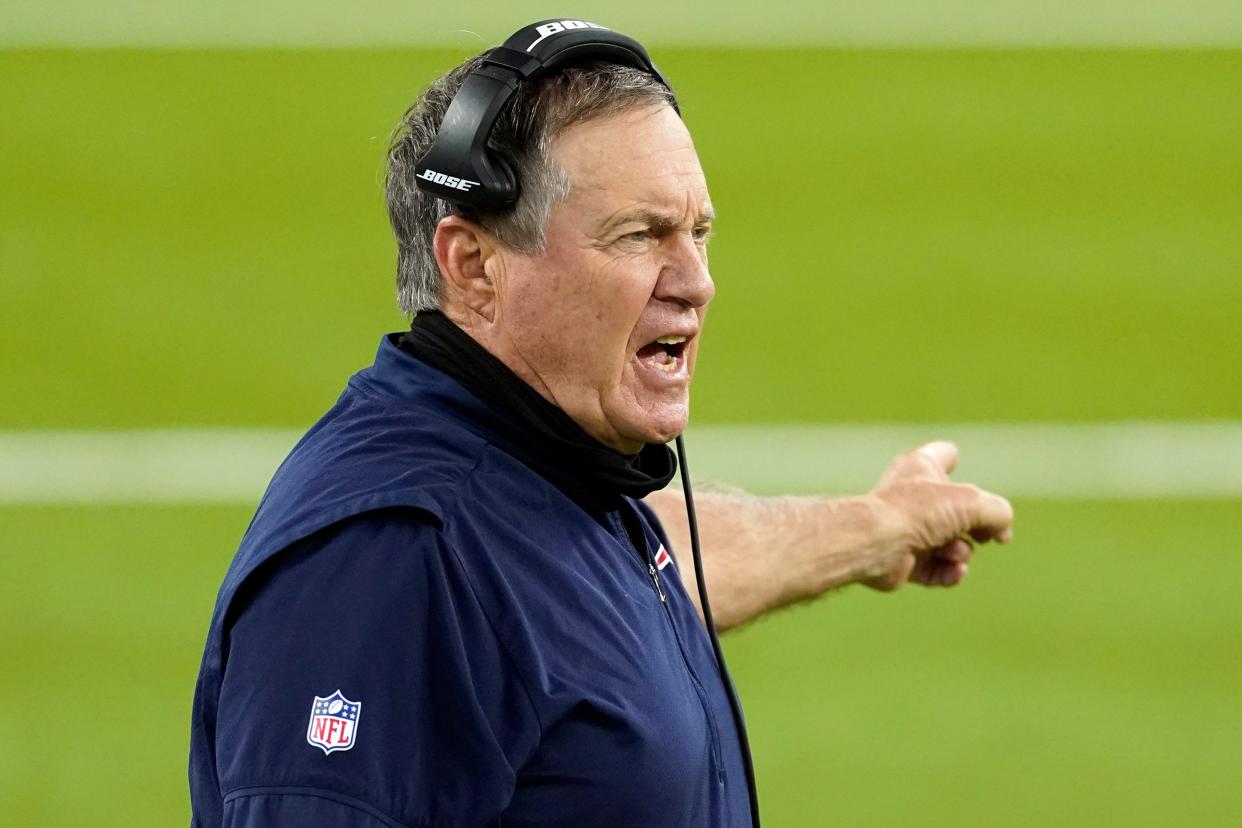Opinion: A lesson in being the best from Bill Belichick - an how success fades
In the days when the New England Patriots were an awful football team — kind of like they are right now — my father was a season ticket holder. We lived in Mansfield, the next town over from Foxboro, where the Patriots still play. People didn’t want to go to the games back then, given that the team was, at best, an also-ran, and at worst, a punchline.
My father died in his early fifties after Bill Belichick’s inglorious first season with the team, which produced a 5-11 record. No one could have seen — though perhaps Belichick and one Mr. Brady would disagree — what would happen the following year when the franchise won its first Super Bowl.
Sometimes my mom will still mention to me how much my dad would have loved to see it. I think she’s right, but perhaps for a reason that she doesn’t quite intend.

Like me, my dad — and I’m sure this factored into my own thinking — put a huge amount of stock in always doing your best. Not your pretend best. Not what could pass for your best. Your all-out, I-have-nothing-more-to-give best. The best that when you give it, you know without a doubt or a shred of guilt that you’ve given it.
That’s how Bill Belichick coached for a lot of years, and that’s what I liked most about him and imagined my dad would have, too.
There are now all of these meathead-type ignorant dismissals how “It was all Brady, brother, not Bill,” but time was when Belichick was an honest-to-goodness virtuoso of leading a team, implementing a mentality and possessing a brilliance for contingency plans.
The 2003 Patriots were ravaged by injury. I thought surely that team couldn’t be going anywhere, with a receiver having to play defensive back, but it was like Belichick had back-up plans for his back-up plans.
That’s a great way to coach and a great way to live. What’s that line? If you don’t get what you like, you better like what you get. Belichick didn’t see it that way. For him, it was more a case of turning what you had to deal with into something that would allow you to get where you wanted to go.
I wonder who will remember that version of Belichick. People can’t remember that thing they guaranteed you was going to happen yesterday in the splashiest terms possible, which didn’t happen at all. We jettison every last one of our thoughts, it seems, just as we kick reality in the rear end and leave it in a ditch back behind us, again and again.
Belichick became someone who cut the corners. He hired friends, his friends' kids, his kids. People didn’t challenge him, and I think he became less inclined to challenge himself.
Anyone who is going to be the best at anything must challenge and interrogate themselves constantly. Am I trying as hard as I can? Am I evolving? Did I do better yesterday than I did today?
When you cease to strive, you come back to the pack. Doesn’t matter if you’re Belichick or Beethoven.
I read this account once of a surgeon who was making more money all the time. He was profiled in publications, so he scheduled more surgeries and worked with less care. He left screws in people, got sued and it all came crashing down.
That was Belichick starting in the Patriots’ Super Bowl loss to the Eagles, when he benched Malcolm Butler. By 2019 Brady, having processed the writing on the wall, wanted out. If he was going to win again, it wouldn’t be with this coach. In came Cam Newton, whom no one else wanted, and the slow fade to the exit had commenced.
Being the best is a singular pursuit. It requires singular devotion to go along with whatever ability one has. This is in everything. Being the best coach ever or the best person that a given person can be.
I’m not a big, “There will never be anything like blank” again, but there won’t be anything like what Belichick did in New England for what I’ll call 16 years. It was unreal because Belichick gave everything he had to make it so. And make himself so.
Even more than the titles — actually, a lot more than the titles — that’s what I valued, because it made me think about my own life, choices, how I was going to be each day after I woke up.
May this larger lesson not be lost to the effacing scrum of our Twitter-style thinking. It’s just too important and beneficial. The win of wins.
Colin Fleming was born on Cape Cod and now lives in Boston. He is the author of eight books including "Sam Cooke: Live at the Harlem Club, 1963" and "Buried on the Beaches."
The Cape Cod Times mobile app gets you to the heart of the matter — fast. Whether breaking news, sports, entertainment or weather get succinct, personalized coverage along with award-winning videos, captivating photography, and interactive user features. Download the app.
This article originally appeared on Cape Cod Times: Opinion: How Bill Belichick was successful leading the NE Patriots
